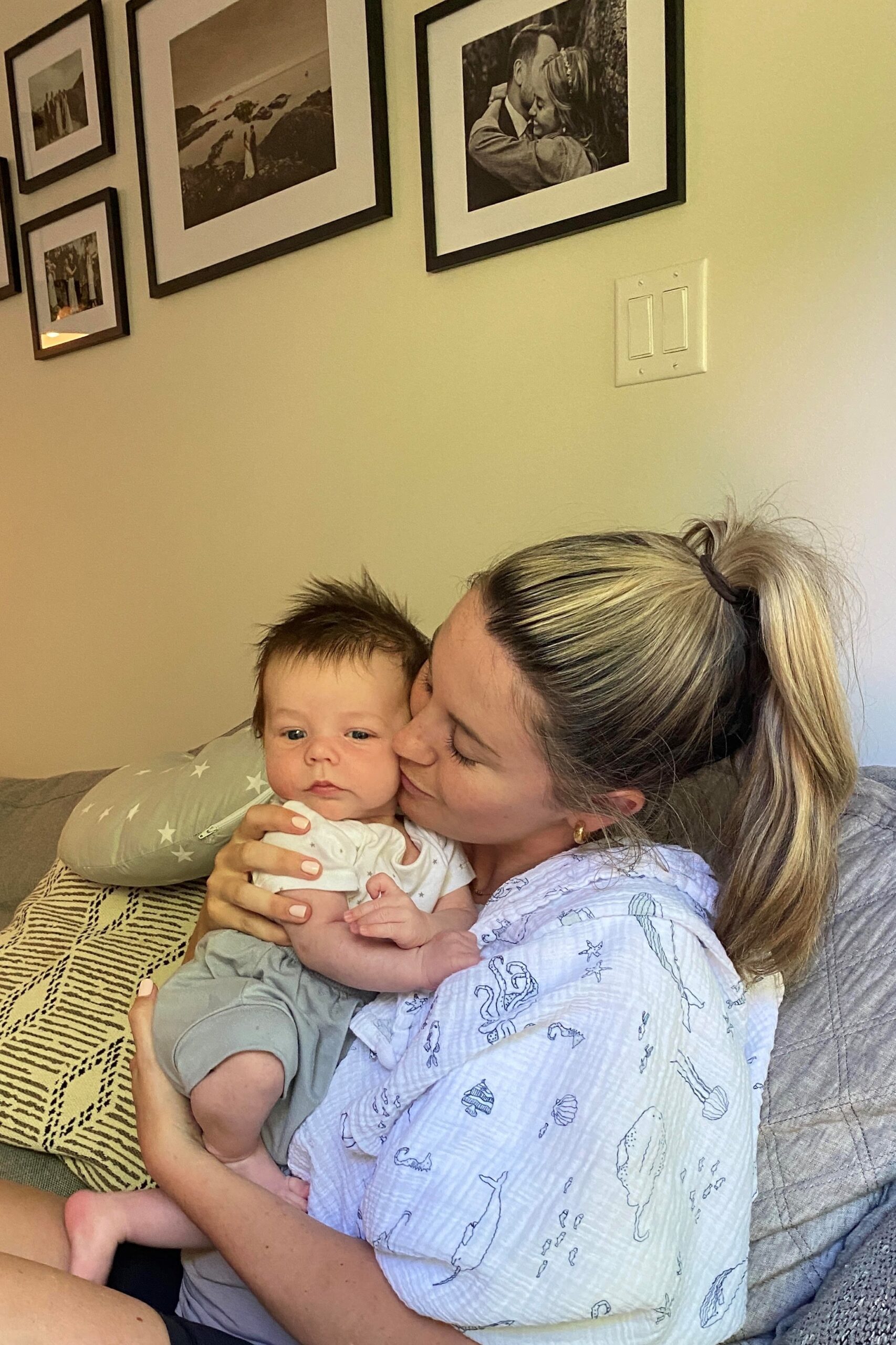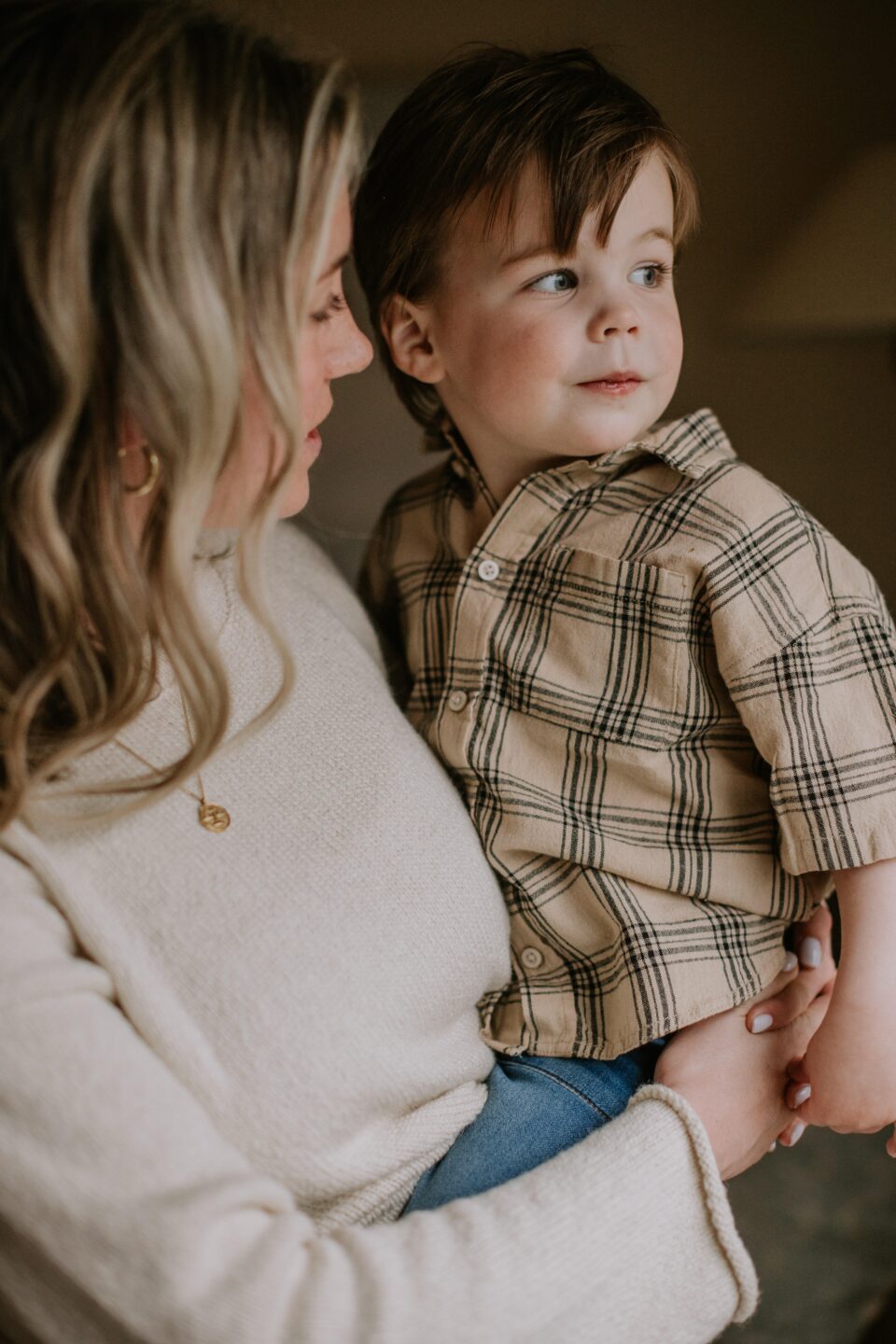
Pregnant, swollen and blissfully ignorant about what was to come, I celebrated my first Mother’s Day in bed eating a stack of fluffy pancakes made by my husband. I admired the bouquet of peonies he gave me and daydreamed about when my baby boy would make his grand entrance. On that bright May morning, I felt optimistic about motherhood and was certain it would always feel this way. A few weeks later my son was born and almost instantly, the flawless facade I had built in my mind began to crumble.
Life with a newborn was far less saccharine than I had imagined with unexpected C-section recovery, struggles with breastfeeding and evershifting COVID protocols that made every midwife appointment and visit from friends and family feel like a potential threat. I felt guilty that I didn’t forge an instant connection with my son, and was desperate to experience the bliss that so many parents talked about when I held him in my arms. Blame social media, the patriarchy or pandemic isolation, but I spent many months sinking beneath the weight of how I thought motherhood should look: I should feel an indescribable bond with my newborn, breastfeeding should be effortless and natural. I should fit into my pre-pregnancy jeans. I should always know what my baby needs. I should be better at this. I should feel like myself again.
When the weight became too much and I reached a breaking point with my mental health, I was referred to the Reproductive Mental Health Program at BC Women’s Hospital + Health Centre. In my first appointment, I sat on Zoom with Dr. Schulman and felt hopeful when she told me with complete confidence that I would feel better. With time, therapy, new medication and the support of healthcare providers and my family, I began to see the light again. I wish I could tell you it was all smooth sailing from there, but in a cruel twist of fate, my postpartum depression returned after my son’s first birthday. A few years later I was able to reconnect with the Reproductive Mental Health team who helped validate my experience and share my story in an essay for Vogue.

As I reflect on my journey as a mom, it’s clear that the shame of motherhood not looking like I thought it should, significantly contributed to the hardships I faced. Hormones and a global pandemic didn’t help, but it’s obvious now that my experience was constrained by a narrative that no one can live up to. Coming up on my fourth Mother’s Day, I have endless gratitude for those who helped me through the painful moments, and am more committed than ever to forgoing unrealistic expectations and instead, embracing my kind of motherhood.
I am learning to accept that I am the kind of mom who struggles with her mental health from time to time, who loves her son more than anything, but craves time away from him to write, read and think in peace. I am proud of the fact that I put myself first sometimes and make parenting decisions that support my son and my happiness. By following my instincts and honoring my own needs, I’ve begun to feel the joy and ease I always wanted to feel as a mom.
Peonies and pancakes are lovely, but what I really want this Mother’s Day is to give myself the gift of mothering in my own way, without apology. Becoming a mom has changed my life irrevocably and I wouldn’t trade any of the painful moments for this peace. Whatever kind of mom you are – a mom that works, a mom that stays home, a mom that cooks organic, a mom who can barely work an oven, a mom that gentle parents, a mom that yells sometimes, a mom that’s unsure but is trying her best anyway – I hope you take a moment to celebrate your unique way of doing this impossible job we call motherhood.
